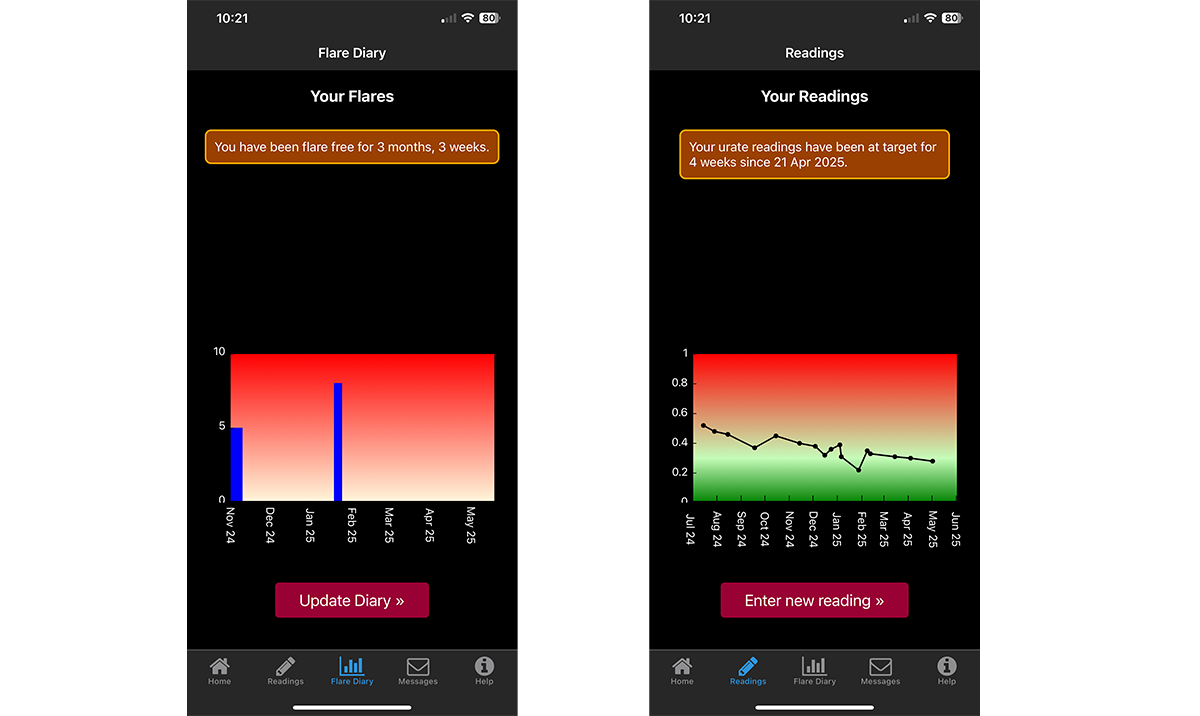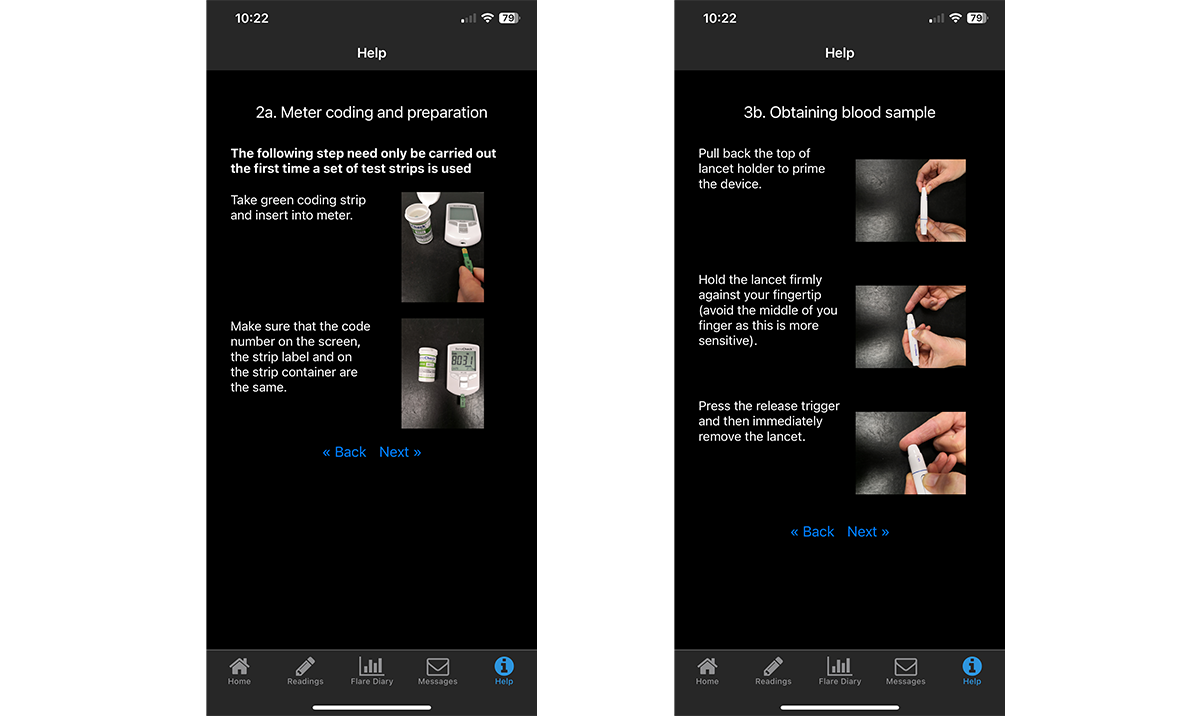Outsmarting gout with remote monitoring through a mobile application
4 June 2025
An exciting research collaboration between EPCC and NHS Lothian is looking to improve the quality of life for people with gout through the use of a mobile app.
Gout is a common condition affecting more than 1 in 40 people in the UK and is increasing globally. It is characterised by intermittent flares of an acutely swollen, severely painful, hot joint, associated with high serum urate levels in the blood. Allopurinol and febuxostat are two urate-lowering therapies (ULT) that can help prevent debilitating flares in the long-term. Though these effective medications are readily available, patients with gout may not be aware of, or be offered, this long-term preventive medication. Even when patients start ULT, the dosage may not be adjusted to ensure that they reach target urate levels and prevent flares.
We have developed an app (GoutSMART), which functions as a health diary for patients to record urate levels and gout flares. Together with a point-of-care urate testing kit, patients can do a finger-prick test at home and input the urate reading into the app to monitor their urate levels. Healthcare professionals are then able to support patients by interpreting these readings and adjusting the ULT dose if necessary. This is done through a messaging service on the app, linked to a secure website to which the healthcare professionals have access. This gives users of the app direct access to advice on how to manage their condition.

EPCC's Amy Krause gives the technical details about the app: “GoutSMART is available on both iOS and Android platforms and offers a convenient and efficient way for patients to send their urate readings directly to the study. With its user-friendly interface, it includes a detailed step-by-step guide to assist patients in taking their own urate readings accurately. Additionally, the app features diagrams that help patients track their readings and maintain a flare diary, providing valuable insights into their health over time. To facilitate direct communication, it also includes a messaging function, enabling patients to easily connect with their clinicians for advice and feedback. To ensure timely monitoring, it sends reminders to notify users when it’s time to take a new reading or when they've received a message from their clinician.”

A feasibility study of this supported self-management approach led by Dr Philip Riches, a consultant rheumatologist based at the Western General Hospital in NHS Lothian, showed promising results. 73% of participants reached urate targets at six months compared to 15% of participants on a pathway where gout care is managed by their GP. An extension of this study showed that regular and close monitoring with this approach led to a significant reduction in flares over two years – only three out of 39 closely monitored patients still experienced flares at the end of the trial.
Dr Philip Riches shares his thoughts on the outcomes of the trials investigating supported self-management in gout: “Early results from use of the app have been very encouraging, with most patients who adopt the supported self-management approach suffering no ongoing flares of gout at all. We are now looking to prove this approach delivers improved quality of life for patients in a cost-effective way.”
We hope to repeat the feasibility study in a larger number of patients in the TICOGA trial (the Effect of Tight Urate Control in Gouty Arthritis). We aim to assess further the impact of supported self-management with GoutSMART on clinical outcomes, with flares as a primary outcome, and are keen to establish the cost-effectiveness of this approach in the hope it could offer a solution to improving patient care at a time of great financial pressure for the NHS.
If you, or someone you know may be interested in this trial, please visit this website: https://institute-genetics-cancer.ed.ac.uk/GoutSMART
Author
Rowan Hart
PhD Student, Institute of Genetics and Cancer, The University of Edinburgh
